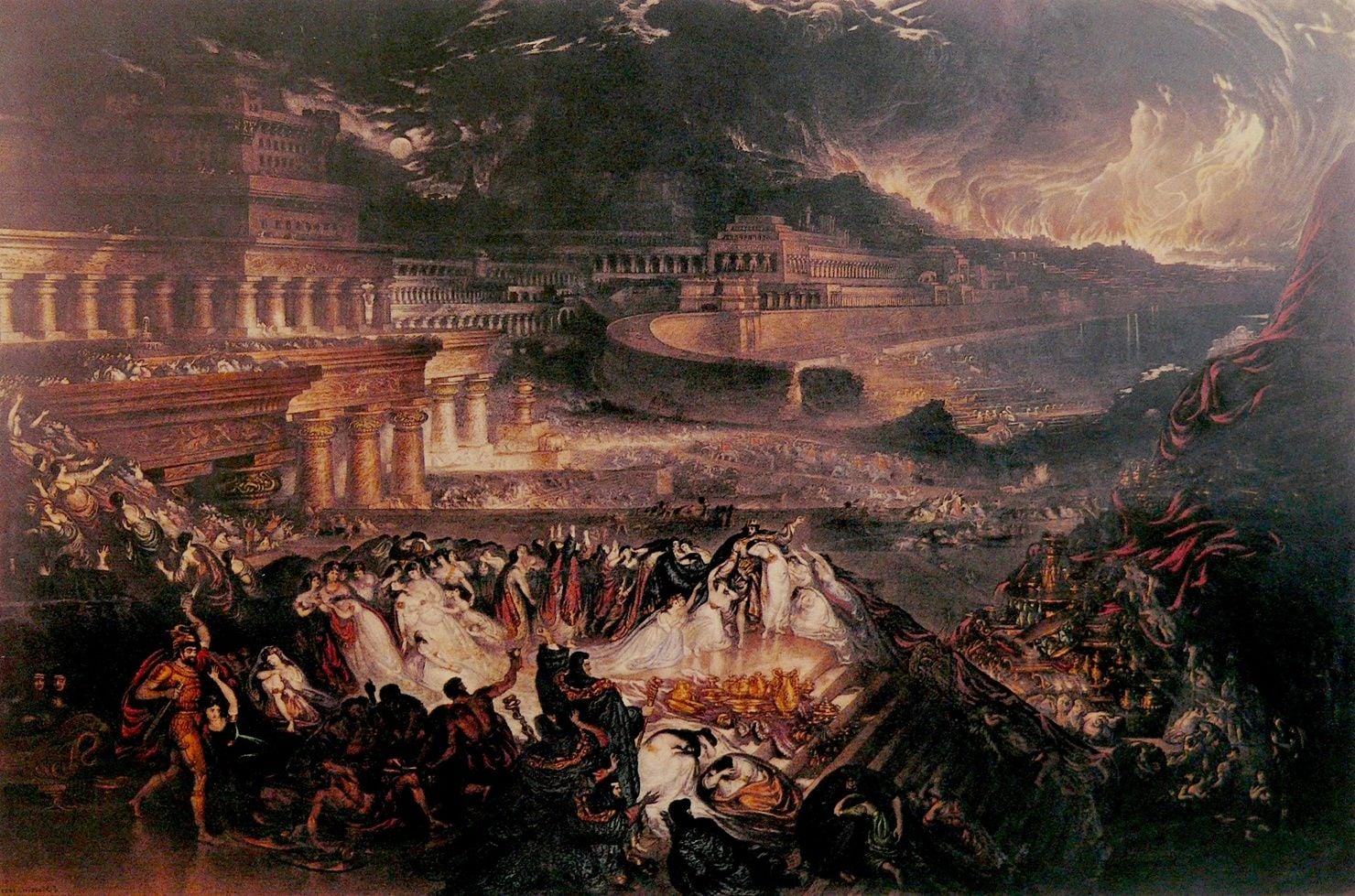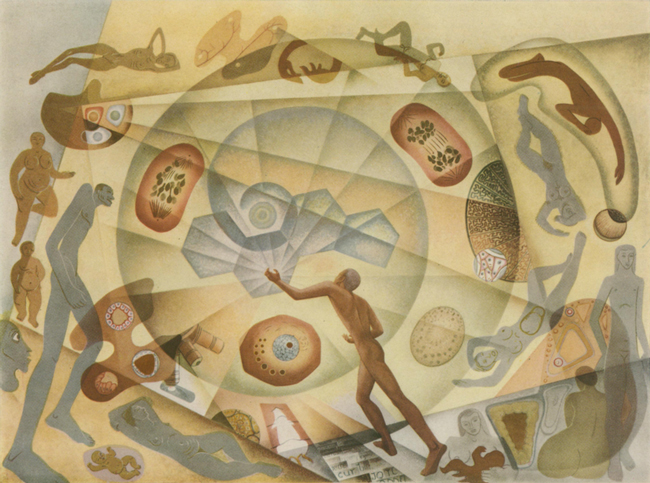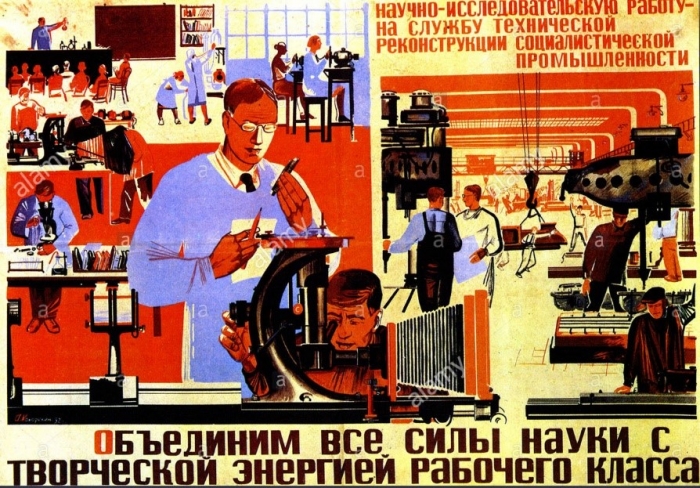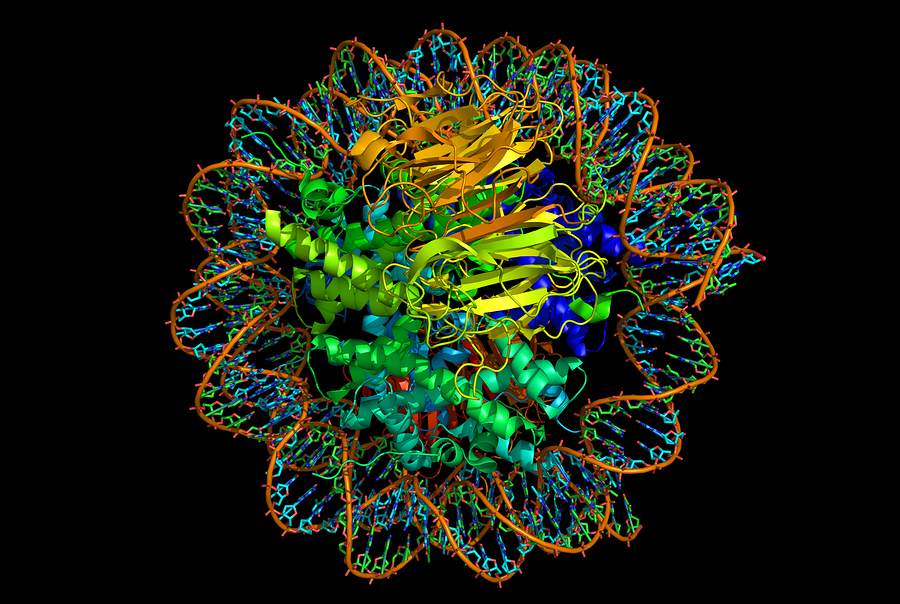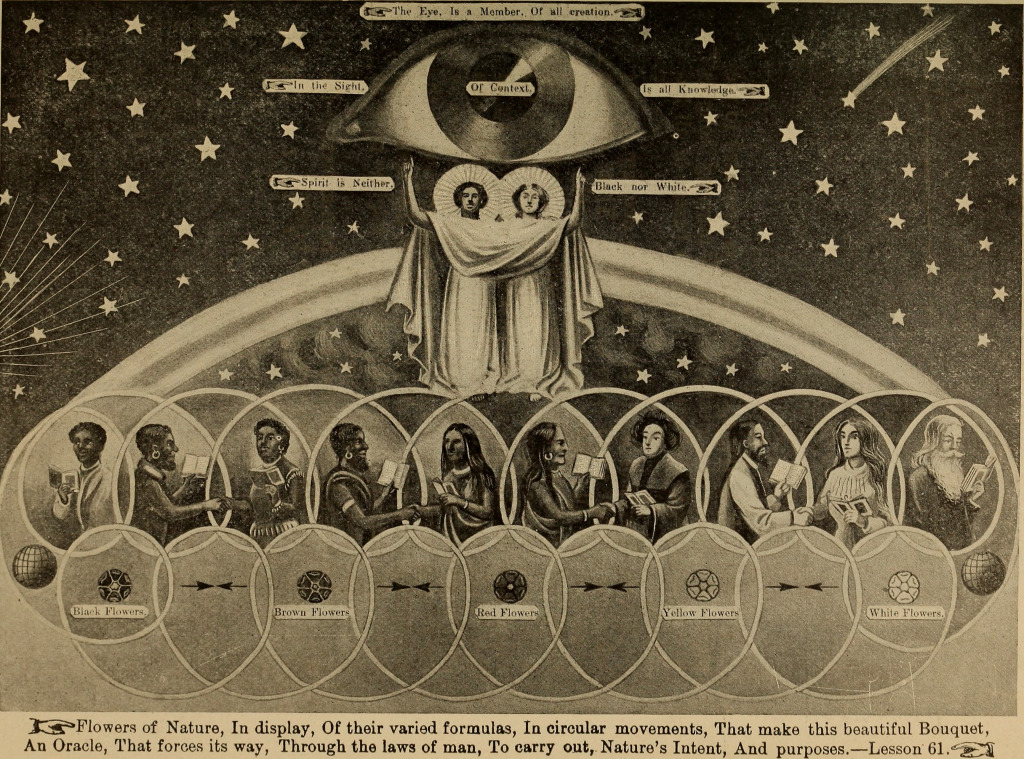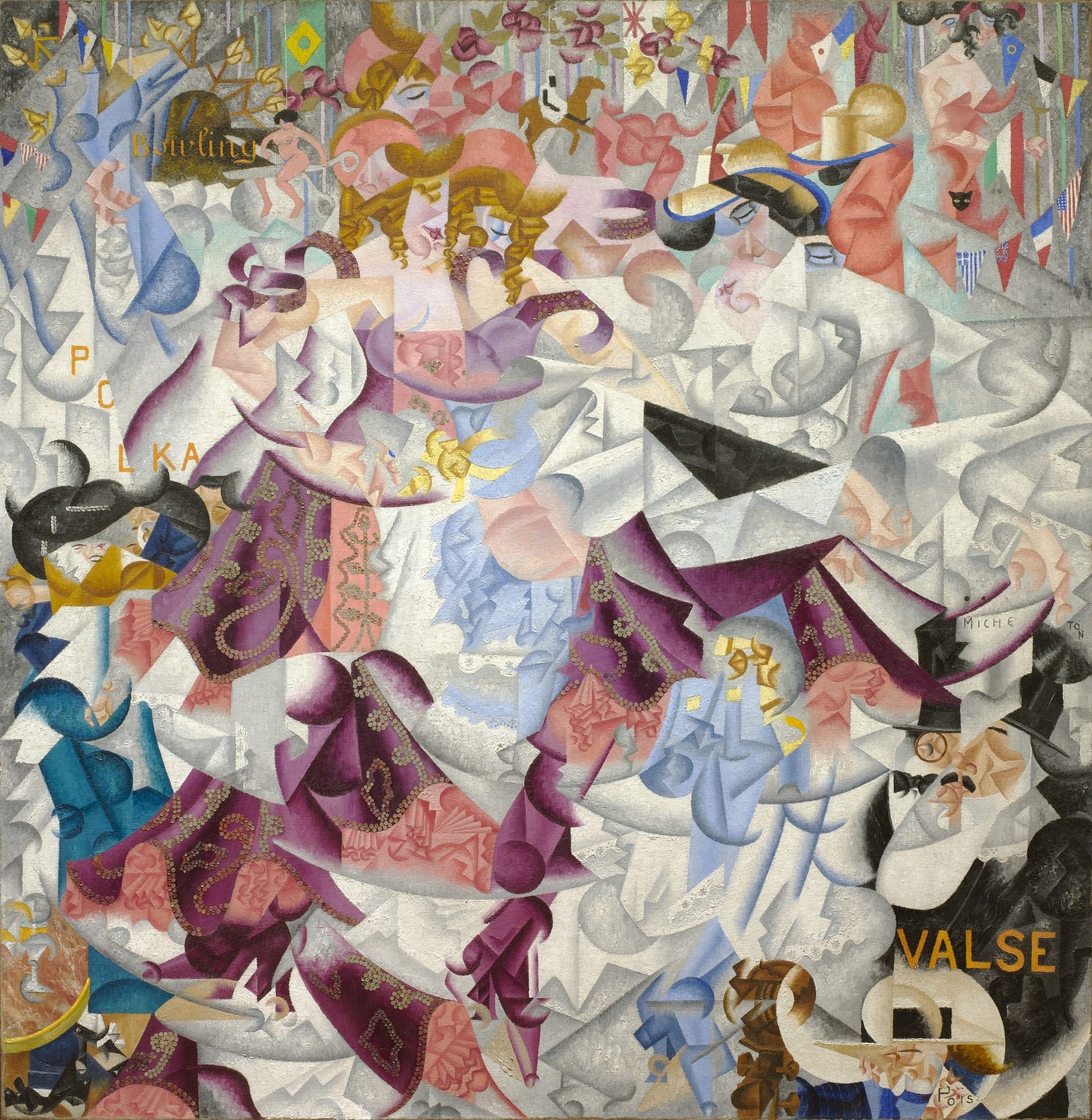
“Marx says that revolutions are the locomotive of world history. But perhaps it is quite otherwise. Perhaps revolutions are an attempt by the passengers on this train – namely, the human race – to pull the emergency brake.” —Walter Benjamin
It’s so fast that we’re bored of speed. Our brains can’t capture the flow of data at the latency required. The 1950s technobrains thought that this high speed shuffling of matter and energy would bring about freedom: robots liberating us from the toil required to survive. In Hannah Barbera’s 21st century, George Jetson only works nine hours a week, Rosie the robot does the cleaning, and Judy presses a button to produce a cooked meal. But there’s no Rosie the robot, and full-time workers rarely work less than forty hours a week. The Jetson’s mirror of the 1950s nuclear family erodes into the noise of an increasingly unintelligible society. Their rockets and flying cars were too slow compared to the photons inside optical cables. No fulfilling family life, nor flying cars or interstellar space flight, only more noise, waste and speed that becomes increasingly more opaque.
The society of control, information age, or whatever you call it, is a cruel joke. The Soviet Union’s computations of input and output tables ended in collapse. The neoconservative dream of imposing a democratic regime in the Middle East dissolved into gunpowder and ruin. The Nazis exterminated six million Jews to achieve this absurd world: their use of American punch-card machines to catalog and eliminate human life prefigured modern military intelligence. Today’s Nazis, law enforcement spooks, and marketers want to pretend they’re in control, with their neural networks and server warehouses. Yet it all amounts to a big nothing: they’re not in control but just lucky. By mere chance they got to the top of an increasingly unstable and therefore uncontrollable civilization [1]: the more dense and interconnected the economic network becomes, the more fragile [2]. The ad-hoc fixes, such as the bank bailouts in 2008, where the Federal Reserve assured investors that it would print the necessary money to plug in the hole of frenzied speculation, are merely postponing the natural instability of an increasingly complex financial system [3].
In spite of the deepening instability, inertia and incentives push towards the growth in number of nodes and links and therefore fragility. Our political memories gyrate around this acceleration of vortices and flows. Both our parents and ourselves remember things getting bigger, faster and better. These better crops and faster roads made many literate and long-lived. Some came from dirt poor parents and now live in million dollar homes, went to outer space or built immense castles of knowledge. The dizzying acceleration left many behind, small farmers lost their land, some had to move to the filthy cities, looking for work amidst strangers and hot asphalt but only finding dust. In the developed world, many rot in call centers or cubicles for most of their waking time, and although maintained alive by cheap calories, they have no other prospects for love, adventure and play except the free pornography and Netflix streamed through optical cables. In spite of these unfortunate casualties, once you aggregate everything into medians and standard deviations, we seem to do all right [4]. Yet behind the neat statistics, the same cybernetic machine that produces these impressive numbers becomes increasingly unstable as the nodes and their links multiply.
This story of growth and speed defines almost all contemporary political thought, from the mainstream to its loyal opposition. The wealthy industrialists and communist cadre created powerful empires around visions of bigger, better and faster worlds. Some empires believed in a classless and stateless society, while others in a world divided into rich and poor. The Soviet Union crumbled, and the United States is in decline, but we are inheriting the same cybernetic machine of radio waves and electricity that connects factories, farms and offices. They also taught us that this machine needs to keep going faster and becoming denser, otherwise something terrible will happen.
Economists in the 19th century described the possible catastrophe of economic contraction in terms of overpopulation. If a growing population exceeds the productivity of their lands in food production, famine will ensue. Here Thomas Malthus expressed the limit as essentially one of biophysics. The fields can only photosynthesize a limited amount of sunlight into chemical energy that can be eaten by humans. These constraints are set by hard matter. However, the subsequent explosion of population that bloated the cities in the next couple of centuries seemed to have abolished those biophysical limits. We found ways to transmute fossil fuels into machines and chemicals that can turn deserts into food factories. The economists, not concerned with physics anymore, limited themselves to the abstract world of incentives and information exchange. The planetary cluster of incentive webs that enmeshes most of humanity requires the acceleration of matter, since there are diminishing returns per transaction. For example, technological gains and competition render production cheaper, and therefore bring prices down. To even keep the same standards of living and same rate of employment, the density and frequency of transactions must increase.
Whereas in the past the physical constraints seen by the Malthusians were displaced by fossil fuels, today the limits of matter strike back. These emerging physical limits are not really limits in the bounded sense, but instead a diffuse turbulence that spreads out across all space. These eddies are produced by the accelerating dynamo behind financial transactions, that is ultimately powered by oil; an abstraction called the economy that can only grow through cheap energy [5]. Some turbulences are measured in the natural and engineering sciences, such as the eddies that power hurricanes and disrupt ecological cycles [6]. Other eddies scramble financial, cultural and psychic life, as financial instruments become more complex and fragile, and the diminishing returns in manufacturing throw people into the precarious and low paying service sector [7]. In a sense, the economist’s dream of using the growing mass of transactions to increase social welfare, is now becoming the same cause of the decrease in marginal returns and the increase of psychic and physical disorder.
These fast outgrowths and velocities are attempts to squeeze value out of an increasingly less profitable base of land and factories [8]. Yet the pricing of these transactions is only an output of the machinery of incentives, not of the physics of the material throughput. Profit therefore says nothing about resilience. What drives adaptations in matter are physical entities, not abstract numbers in a ledger. Darwin’s insight was that the special organs of plants and animals that give the appearance of intelligent design, are just adaptations produced by random motion of matter. A long time must pass before a trait emerges out of the chaos that enhances a species’ fitness. This creative process is also destructive, for the violent motion of atoms destroys countless other life forms.
The same creative destruction underlies the rise and fall of human cultures. Countless hunter-gatherer groups and villages disappeared without leaving any trace, the bones and dust that archeologists divine are a mere sand particle of an otherwise hidden story. Other cultural forms survived and adapted, evolving for thousands of years. This evolutionary process selected agriculture, and ultimately the state, as the Holocene warming brought adequate conditions for massive sedentary populations [9]. These climatic conditions that brought the birth of civilization thousands of years ago, are transforming at the scale of centuries, a blip in geological time. The planet-wide human system is also undergoing massive changes in the pursuit of profit, changes that haven’t been time tested. Complexity increases to the point that it becomes unintelligible, overtaking us. The brain can only absorb so many bits per second. The growth of environmental disorder, alienation and inequality is just a mere sliver of the mass of weak points that remain hiddens behind the noise.
The unintelligibility of this maelstrom of photons has rendered utopias ridiculous. The world is too complex for neat stories, the noise just too overwhelming. Nobody believes that America is fighting for freedom, or that China wants to replace capitalism for world communism. Even the politicians are quite honest about it, usually it’s about “threats to American interests” and nothing else. It’s not just moral decline like the religious and traditional say: matter and energy have become just too complex to fit simple interpretations. Even today’s fashionable subjects in science, such as complexity theory, Bayesian probability, and chaos theory converge into the inscrutability of modern matter.
The problem isn’t the lack of vision. There are in fact, many visions to choose that orbit around your favorite boomer pundit, gamer channel, or YouTube personality. Even in the edges of the global electron cloud, visions that used to only exist in fringe book stores, and the snail mail correspondence of a dozen intellectuals, now spread through memes on Twitter and Facebook, urging the return to peasant life [10], or the coming of a communism of robots [11].
The noise is a thick fog that envelopes the tangled links and obscures the connectors. This opacity becomes a screen of psychic projections, a canvas illuminated by visions of a messianic Trump saving us from the pedophile vampires in Washington, equilibrium equations written down by some economist, and lines and graphs in best seller books. Ideas are not obvious enough to inspire, only money is. If you want to do politics, hiring staffers and talking to donors is more important than visions. “Post-truth”, “truth is relative”, and similar phrases are both mocked and believed earnestly. Meanwhile, corporations enormously profit from the variety of ideologies and neuroses, farming attention through social media, whether it’s through a meme about 5G towers radiating COVID waves, or a Facebook group celebrating how much members “freaking love science”. The financial system expands as it hedges the predictions associated with various ideologies, entangling the links even more. Even the fall of capitalism itself is already priced in some ledger [12].
In a world like this, no wonder the transient nature of “political movements.” The modern revolutionaries thought that by grasping the root, through a rational understanding of the world, they could rally the masses for freedom against the kings and the capitalists. Now the root is buried way beneath the noise, turbulence prevents a crystal clear vision of what to rally for, and who to rally against.
It’s instructive how much the classical tradition influenced both modern revolutionaries and their enemies. Greek writers provided relatively clean political categories, such as democracy, tyranny, oligarchy and monarchy, to rally around and also parse the chaos of social uprisings. This is in stark contrast to the confusion of what America is today. The textbooks and official documents say that America is a democracy. But its real nature in terms of classical concepts is unclear; some say that financial interests have captured the American state and turned it into an oligarchy. Already in the 19th century when the world was much less interconnected and populous, Marx sensed the inadequacy of these concepts in describing the social chaos surrounding him. He recognized that the corrupt and exploitative states that called themselves democracies weren’t “the rule of the poor”. At the same time, these faux-democracies brought important rights like nominal equality before the law and freedom of the press [13]. These classical political categories, although they described a slice of reality, couldn’t really capture the entirety of the social storm.
These classification of societies might have seemed obvious to the Greeks because of their smaller and less interconnected societies. Ancient Greek states rarely had populations that surpassed 40,000 people, and state policy was so simple that it could be legislated in mass assemblies and executed through sortition. The word revolution implies a cyclical motion that repeats, and the modern revolutionaries wanted to repeat a different, but still familiar version of these ancient categories and battles, for example, democracy and the overthrow of tyranny. Typical class analyses also share this familiarity. Although extreme inequality, exploitation, and even slavery exist, they don’t represent simple unidirectional relations as the ancient link between masters and slaves. Today, many who depend on waged work in the United States are often worth hundreds of thousands of dollars, since their assets in the form of housing and retirement funds continue to appreciate. For example, the median household wealth of whites in America is about 170,000 dollars.14 The old sentence of “workers are those who own nothing but their labor” slowly evaporates before the reality of the United States. Not to mention that cheap consumer goods that are enjoyed by even the poorest in the United States depend on immense exploitation in developing countries [15].
The above simple classifications excited the ancient philosophical minds, as they were analyzable through schematic reason. Yet this reason fails to capture the totality of the social process. In fact, Marx and Engels criticized the “utopian socialists” because the latter only envisioned artificial solutions that emanated from “reason”. Today we share the same vice of mystifying social turbulence through schematic visions of how the world ought to be.
Policy wonks and intellectuals craft these visions through elegant models that supposedly solve obvious problems. Everybody knows we consume too much, emit too much carbon, reproduce too fast. Utopia is the expectation that these problems can be solved through thought experiments: steady state economies[ 16], world government, returning to the land. It’s not just the navel gazers since many activists and politicians organize under thought experiments. You can’t solve murder by imagining a world without murder.
The subject of Marx’s Capital was a critique of the tendency of simple models to conceal an ocean of noise. According to Nicole Pepperell [17], the book wasn’t about revealing the “laws of motion” of capitalism, as it’s usually understood, but instead catalogs and interprets the prevailing economic and philosophical ideas, only to show they are superficial appearances caused by a much more intricate and often contradictory reality: the stripping of peasants from the land to transform them into “free workers”, the gunpowder and blood of colonialism, the exploitation of human beings through the wearing and tearing of their nerves and bones, the speed of machines. Meanwhile, from the same organized chaos emerge possibilities to transcend capitalism: the chartists, trade unions and other movements that assert collective working class interests, the nominal “equality before the law” that hints to a possible real equality. The ideas criticized weren’t “wrong” because they didn’t capture patterns, but instead their apparent and idealistic order conceals the real and concrete chaos: the long hours in the factories that cripple and kill both children and adults, the violent stripping of lands from peasants, the economic fragility created by the frenzied flows of workers and commodities.
Today’s prevailing economic and policy ideas in peer reviewed journals, in the mouths of cable pundits, and within central banks hide something far greater, darker, and messier than the statistical aggregates and computer models of experts. The empirical correlations that exist among GDP growth, liquid financial systems, life expectancy and metrics of “quality of life” [18]. while grasping at real signals, bury their cause within the growing noise in the planetary system, as matter flows faster than the rate at which cybernetic systems can adapt, weakening both human and Earth structures.
The point of Marx’s critique of economic abstractions is not only to show the limits of elite thought as it fails to grasp the violent chaos, but to mine possibilities for emancipation. Once the averages and standard deviations are dissolved, then social instabilities reveal futures beyond the models of policy wonks. Math, ecology and the archeology of civilizations show that complex systems, as they grow more interconnected and top heavy, become more fragile, since shock waves can transmit through the networks’ links [19]. The collapse of a central node would shed considerable complexity, threatening the coherence of the whole. The American government saved the banks in 2008 precisely to stave off this collapse, prolonging the life of a sclerotic monetary order. The lines and plots of Stephen Pinker and the like will never be able to capture the hot, bubbling magma [20] concealed by statistics.
However, it’s within this turbulent magma where a less chaotic, more rational world can form. Modern complexity and speed is borne out from immense social stratification. Cheap labor and cheap goods are required for today’s high frequency market. Underpaid workers in the developing world, the flexibility of the gig economy and the decline of labor unions, bring transaction costs down and therefore accelerate the velocity of money. The organic protests against the precarity of speed, sometimes born out of the labor movement, sometimes floating in cyberspace or psych wards, ultimately are also protests against class society. The revolution will not be planned, but if it were to appear, it would take the shape of a great slow down.
It’s impossible to describe the specifics of this slow down. However, we know that housing, healthcare, autonomy, companionship and other deprivations that define poverty in the developed world are not resource intensive nor require advanced technology. They are expensive today because of a social complexity that grew beyond the human mind. Theories of supply and demand just beg the question: the point isn’t where supply equals demand, but what caused that supply and demand, which is mostly unanswerable due to the immense number of possible causes.
The cost of these rudimental markers of quality of life are inelastic to changes in technology [21], rendering the dogma of rapid technological advancement irrelevant. So certainly a civilization that is sustainable while satisfying these needs is possible, what Ursula K. Le Guin called an “ambiguous utopia”[22], where one could still be bored and lonely, beaten up, or face bureaucratic incompetence, but at least without a sickness or a foolish comment bringing financial ruin. A place where fucking, socializing and raising a family is easily accessible, instead of requiring a middle-class paycheck produced by a 50 hour work week. Certainly a world like this beats one day shipping from Amazon or imported avocados in the grocery store.
An ambiguous utopia, no matter how improbable, requires a public space where those who have stakes in their communities can discuss, plan and deliberate in order to govern. For the revolutionists educated in the classical tradition, revolution was the act of setting up a republic — a government of discussion and deliberation among those who share a mutual interest [23]. In premodern Europe, the res publica didn’t exist: those who shared mutual interest on public matters couldn’t deliberate, and instead politics was through the orders of lords and kings. The 18th and 19th century revolutionists claimed to bring about the people’s republic, but this “public thing” became a farce, since it was based on the exploitation of a labouring class that wasn’t part of the deliberations.
Today, even the concept of government is becoming a farce. A growing autonomous matter, in the form of waste, labyrinthic supply chains, and ecological instabilities, is escaping the simplistic statistics and models of the neoliberal state. A material world that’s so complex it can’t be filtered through the human brain doesn’t allow its administration by a “res publica” based on deliberation; it becomes autonomous, ruled by its own feedback. Revolution as the realization of the “res publica” would imply the deflation of complexity. This increasingly unstable complexity will someday collapse, whether it’s desirable or not, as it did for the Mayans and the Romans. This shrinkage is a necessary, but insufficient condition for the res publica, since there are other darker possible futures. How can the post-complexity world become more intimate, freer and governable? How can collapse be turned into a revolution, in the same way the French did it with the decay of their monarchy? I hope the answer appears before it’s too late.
Endnotes
1. Nyström, M., Jouffray, J. B., Norström, A. V., Crona, B., Jørgensen, P. S., Carpenter, S. R., … & Folke, C. (2019). Anatomy and resilience of the global production ecosystem. Nature, 575(7781), 98-108.
2. Vespignani, A. (2010). The fragility of interdependency. Nature, 464(7291), 984-985.
3. May, R. M., Levin, S. A., & Sugihara, G. (2008). Ecology for bankers. Nature, 451(7181), 893-894.
4. Pinker, S. (2018). Enlightenment now: The case for reason, science, humanism, and progress. Penguin.
5. Mitchell, T. (2009). Carbon democracy. Economy and Society, 38(3), 399-432.
6. Stott, P. (2016). How climate change affects extreme weather events. Science, 352(6293), 1517-1518.
7. Smith, J. E. (2020). Smart Machines and Service Work: Automation in an Age of Stagnation. Reaktion Books.
8. Brenner, R. (2006). The economics of global turbulence: the advanced capitalist economies from long boom to long downturn, 1945-2005. Verso.
9. Brooke, J. L. (2014). Climate change and the course of global history: a rough journey. Cambridge University Press.
10. Smaje, C. (2020). A Small Farm Future: Making the Case for a Society Built Around Local Economies, Self-provisioning, Agricultural Diversity and a Shared Earth. Chelsea Green Publishing.
11. Bastani, A. (2019). Fully automated luxury communism. Verso Books.
12. Meister, R. (2021). Justice is an option: A democratic theory of finance for the twenty-first century. University of Chicago Press.
13. Marx, Critique of the Gotha Programme
14. McIntosh, K., Moss, E., Nunn, R., & Shambaugh, J. (2020). Examining the Black-white wealth gap. Washington DC: Brooking Institutes.
15. Smith, J. (2015). Imperialism in the twenty-first century. Monthly review, 67(3), 82-94.
16. Daly, H. E., & Daly, H. E. (Eds.). (1973). Toward a steady-state economy (Vol. 2). San Francisco: WH Freeman.
17. Pepperell, N. (2010). Disassembling Capital (Doctoral dissertation, RMIT University, Victoria).
18. Pinker, S. (2018). Enlightenment now: The case for reason, science, humanism, and progress. Penguin.
19. Kennett, D. J., & Marwan, N. (2015). Climatic volatility, agricultural uncertainty, and the formation, consolidation and breakdown of preindustrial agrarian states. Philosophical Transactions of the Royal Society A: Mathematical, Physical and Engineering Sciences, 373(2055), 20140458.
20. Castoriadis, C. (1994). The logic of magmas and the question of autonomy. Philosophy & social criticism, 20(1-2), 123-154.
21. Smith, J. E. (2020). Smart Machines and Service Work: Automation in an Age of Stagnation. Reaktion Books.
22. Ursula Le Guin, The Dispossessed.
23. Hannah Arendt, On Revolution.
